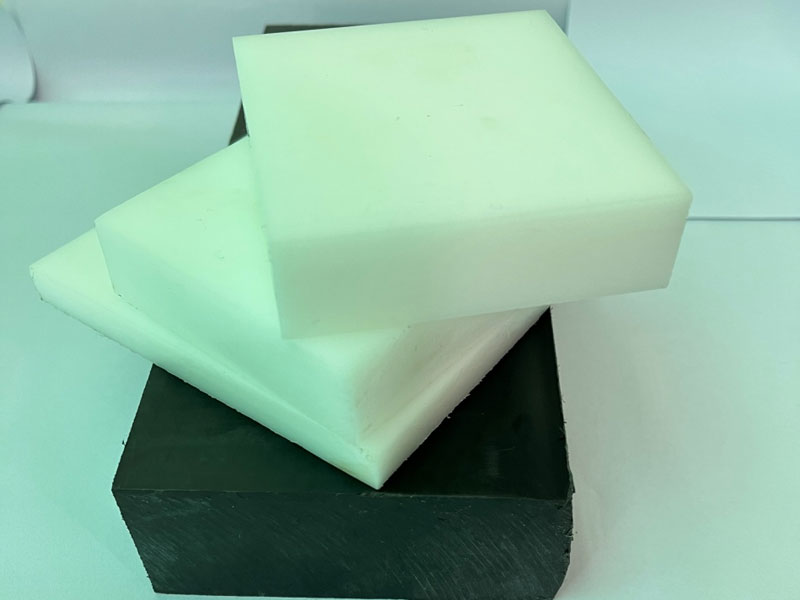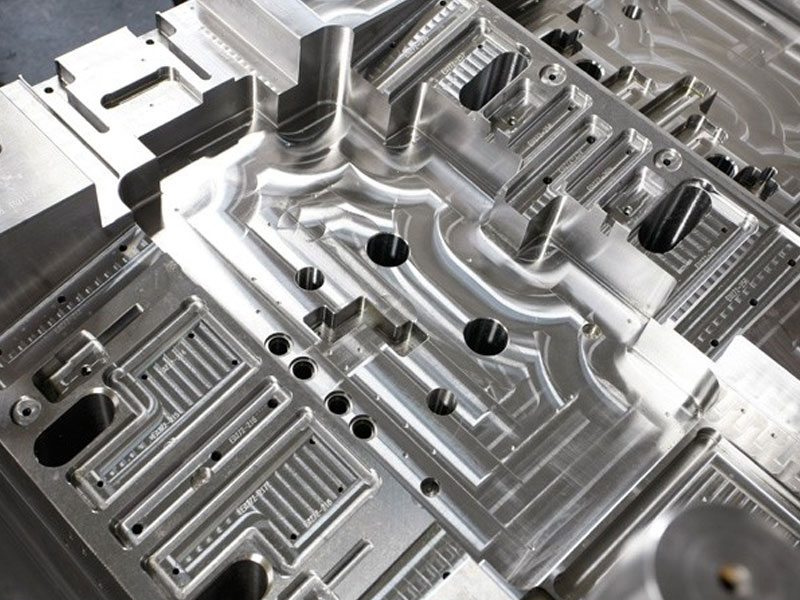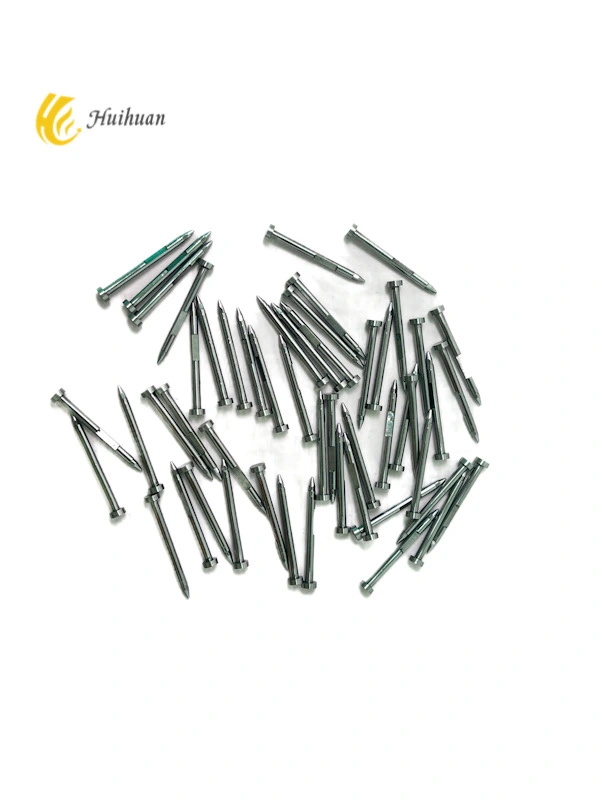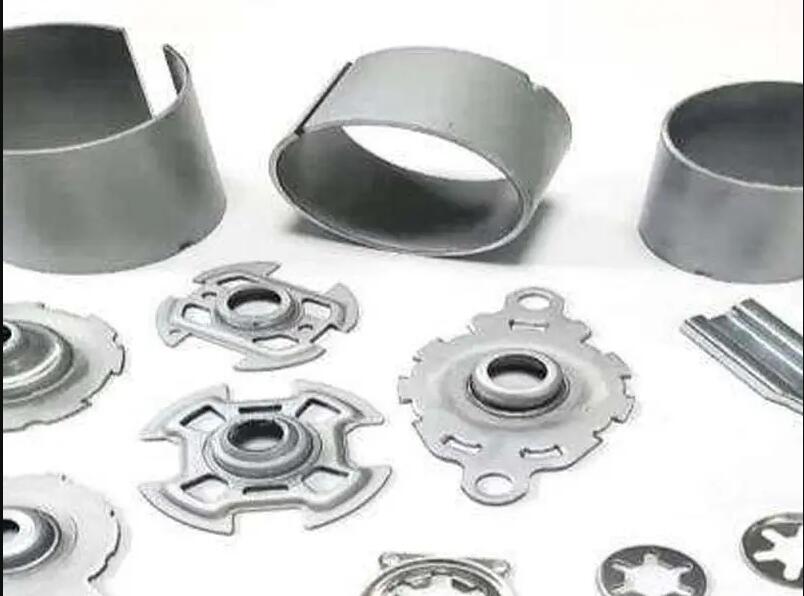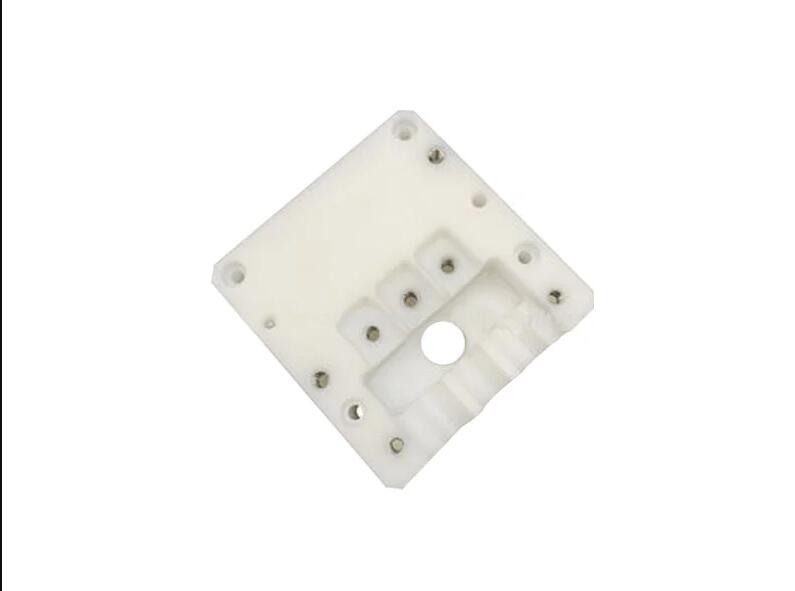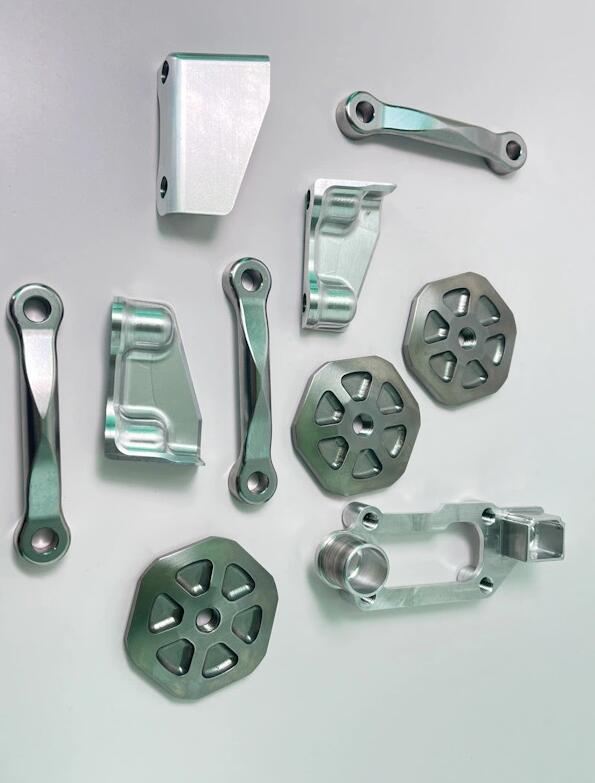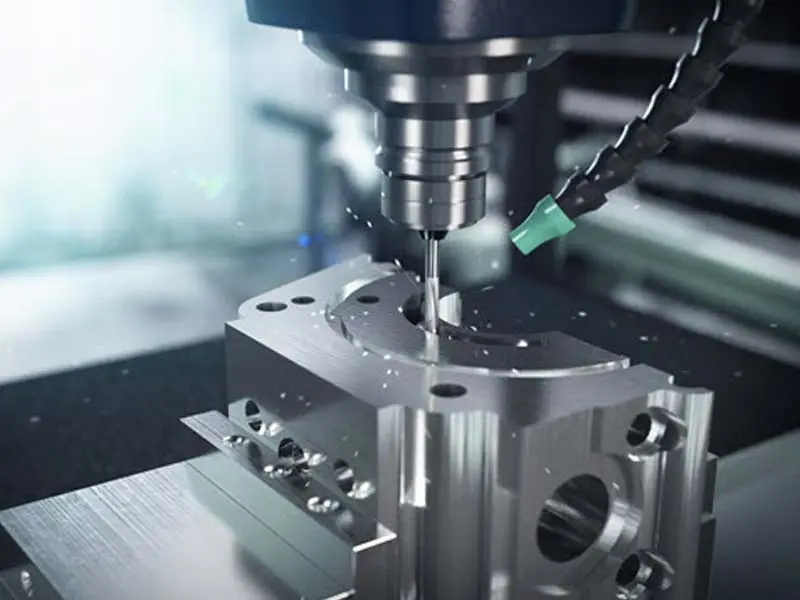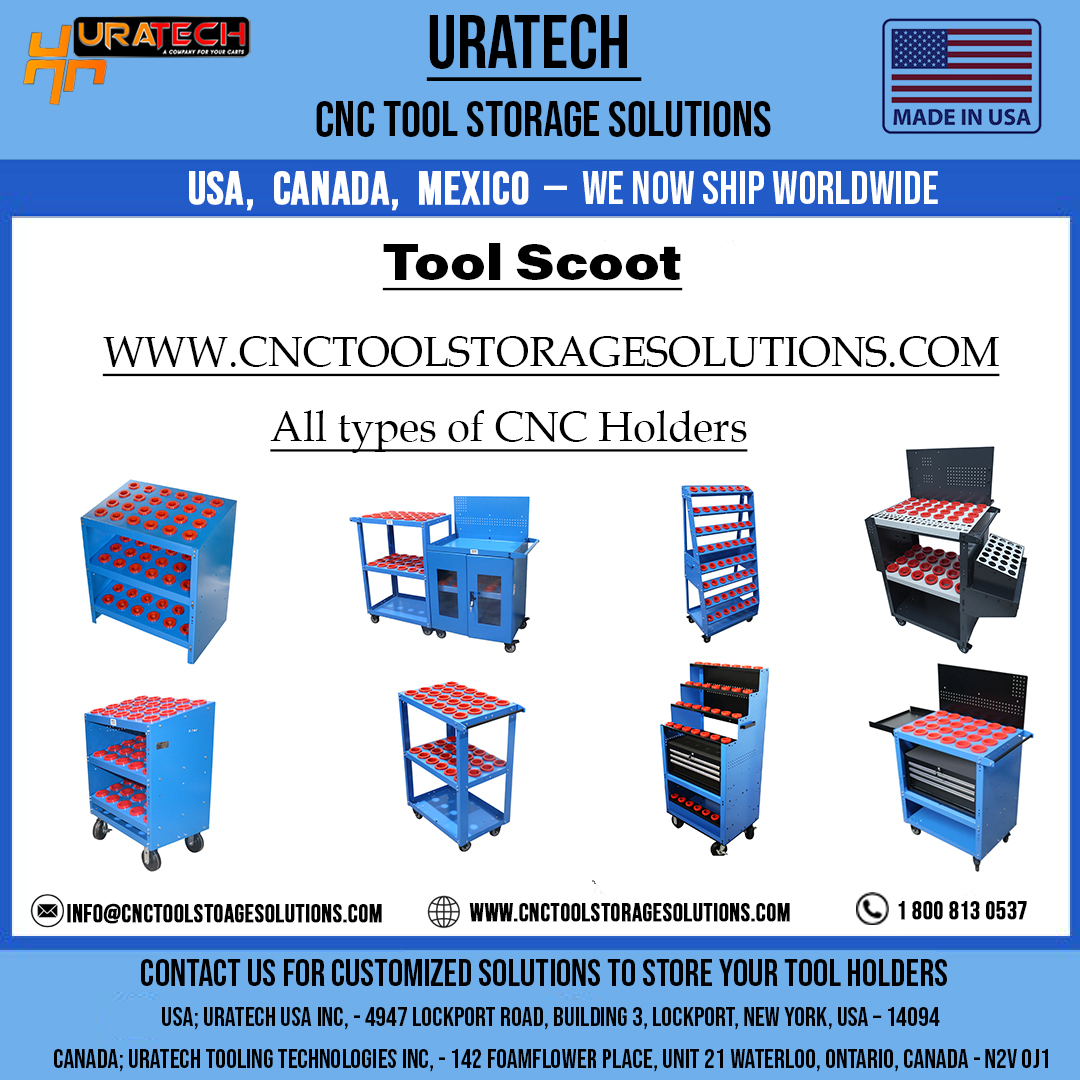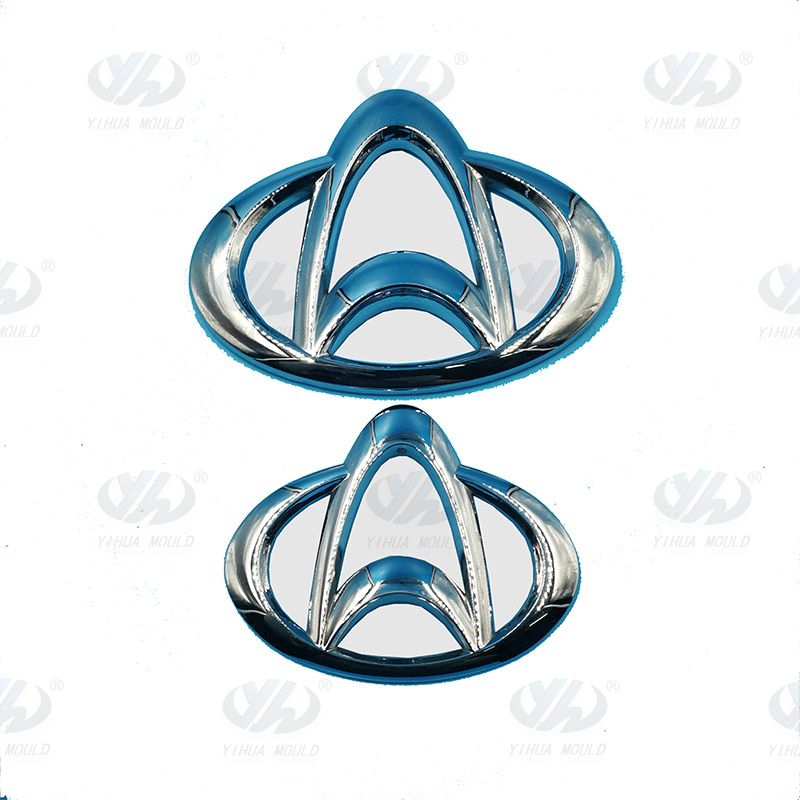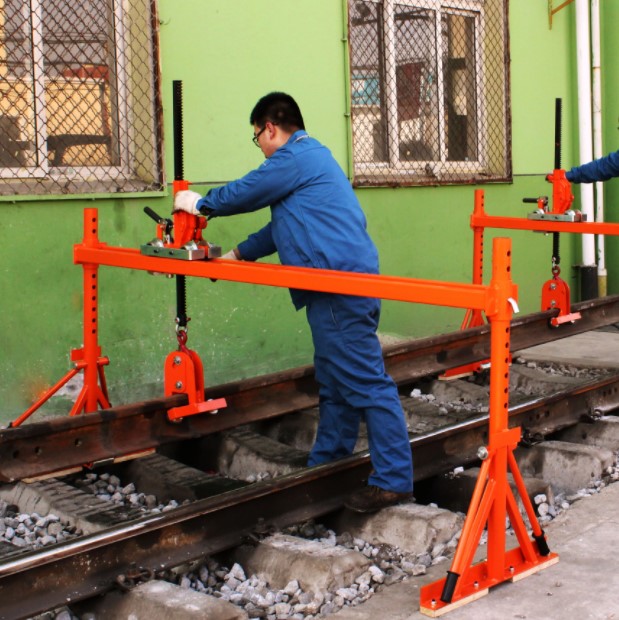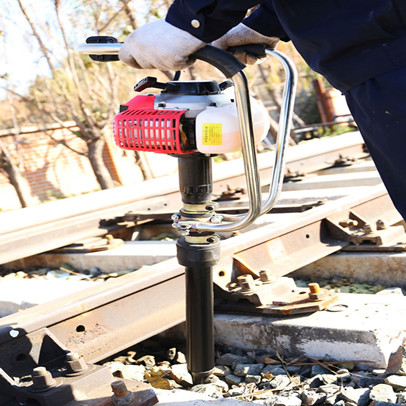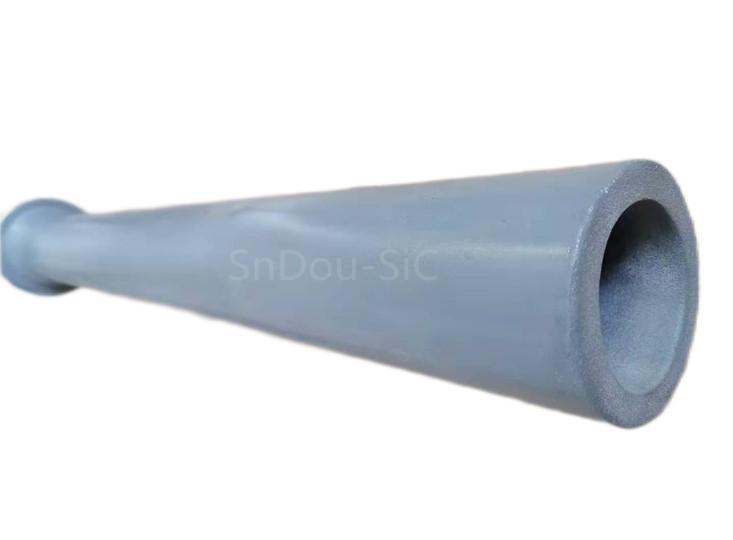CNC Machining Material
Metal Material Machining
Aluminum Alloys
Aluminum alloy material is divided into: 6061 mainly contains magnesium and silicon elements, suitable for applications requiring high corrosion resistance and oxidation, easy to coat, and good processability. It is suitable for aircraft parts, electronic parts and joints or various hardware and electrical parts, valve parts, etc. 7075 mainly contains zinc and is a super hard aluminum alloy with good wear resistance, no deformation after processing, high thermal conductivity, which can shorten molding time and improve work efficiency. Commonly used in the manufacture of aircraft structural parts, mold manufacturing, etc.HuiHuan offers complete aluminum CNC machining services to produce custom aluminum parts in a variety of shapes and grades, including 3003, 4017, 5052, 6061, 6063 and 7075.
Stainless Steel CNC Service
Stainless steel acquires a wide range of applications in heavy industry, light industry, household goods industry and architectural decoration because of its good corrosion resistance and a variety of properties such as good appearance Its value lies in its strength, heat resistance and exceptional corrosion resistance. In fact, corrosion resistance is the main factor that distinguishes stainless steel from ordinary steel.HuiHuan offers a complete Stainless Steel CNC machining service and can produce custom Stainless Steel parts in various shapes and grades, including 303, 304, 316, 416, and more.
Steel CNC Machining
Steel is one of the metal alloys used for precision CNC machining. It has high dimensional stability and machinability. Precision CNC machining requires consideration of different grades of steel, which include low carbon steel, carbon steel, normal carbon steel, low alloy steel and high alloy steel. Low carbon steel has good ductility, while carbon steel has high strength. Plain carbon steel is preferred for low ductility and high strength applications. Thus, alloy steels can be used for applications requiring properties such as corrosion resistance, durability, and weldability.HuiHuan provides complete high carbon alloy steel CNC machining service, we can produce customized high carbon alloy steel parts in various shapes and grades, the main materials of alloy steel are 20Cr, 40Cr, 20CrMo, 35CrMo, 42CrMo, 20CrMnTi, 35CrMoA, SKD11, Cr12MoV, etc., mainly used in machinery industry, automotive.
Copper Plating Aluminum
Copper is a non-ferrous material that is not susceptible to corrosion. It has electrical conductivity and durability, high compressive strength and long application life therefore it is suitable for precision machined electronic components.
Custom Brass CNC Machining
It has high strength, good plasticity, good ability to withstand cold and hot pressure processing, welding and corrosion resistance. Has good mechanical properties, good machinability and easy to weld. Generally in the auto parts, medical parts, electrical parts and other precision copper parts dosage is more.
Titanium CNC Service
Titanium alloys have a high strength with a tensile strength of 686-1176 MPa, while the density is only about 60% of that of steel. It has high hardness, low modulus of elasticity, excellent high and low temperature performance, and high corrosion resistance. Commonly used titanium grades are titanium 1-4, which provide progressively higher tensile and yield strengths. grade 5 titanium is suitable for temperature resistance, while grade 9 titanium is popular for its suitability to ensure durability.
Plastic CNC Machining
Acrylic
The lenses produced for automotive lights are clear PC material with high impact resistance. Many projects choose PMMA as the material during the prototyping phase. The reason is that a hand-polished PMMA prototype will have better aesthetics and optics than PC. Acrylic prototypes look more transparent and will have a better surface finish through skilled hand polishing.
PEEK characteristics:
corrosion resistance, anti-aging
resistance to dissolution;
high temperature, high frequency and high voltage electrical performance conditions
both toughness and rigidity;
size requirements for precision conditions
irradiation-resistant wear-resistant, corrosion-resistant conditions
hydrolysis-resistant, high temperature and high pressure can still maintain excellent characteristics;
wear-resistant, anti-static electrical insulation properties;
mechanical strength requirements of high parts 10: low soot and toxic gas emissions. Mainly used in automotive parts, semiconductor manufacturing and electronic appliance industry, medical devices, wire packages and office copiers, etc
POM
POM has good dimensional stability, high surface hardness and dense surface, can withstand general chemicals and solvents, and has good electrical properties. Good mechanical properties and rigidity, close to metal materials, dimensionally stable although shrinkage is large. Excellent fatigue resistance and creep resistance. Immediately return to original state after removal of external force, good wear resistance, self-lubrication and friction. The disadvantages are: easy to be decomposed by heating, large molding shrinkage, and higher molding difficulty than nylon. High density, poor acid resistance and flame retardancy, poor weather resistance. Thermal degradation is very rapid at higher temperatures. Thermal-oxidative degradation also occurs in the presence of oxygen.
PMMA
Plexiglass (Polymethyl methacrylate) is a common name, abbreviated as PMMA, and is an important thermoplastic that was developed earlier. Plexiglass is divided into four kinds of colorless transparent, tinted transparent, pearlescent and embossed plexiglass. Smooth surface, highly transparent, light weight, high mechanical strength, corrosion resistance, humidity resistance, sunlight resistance, good insulation properties, good sound insulation, easy processing. It can be divided into three types: tube-shaped material, rod-shaped material and board-shaped material. Widely used in construction, advertising, transportation, industry, lighting and home and other fields.
Sheet Metal Fabrication
Sheet Metal Punching
Sheet metal punching is a cutting process in which material is removed from a piece of sheet metal by applying a sufficiently large shear force. The most common punches are simple geometric shapes (circles, squares, rectangles, etc.) or combinations thereof. Standard shapes of punches and dies are usually used, but custom tools can be made to punch complex shapes.The press drives the punch at high speed down through the sheet and into the die below.A small gap exists between the edge of the die and the concave die, causing the material to bend and fracture rapidly. The piece of metal punched from the sheet falls freely through a tapered opening in the die. CNC punch presses can be hydraulically, pneumatically or electrically driven and can make approximately 500 strokes per minute.
Sheet Metal Laser Cutting
Metal laser cutting is now a more advanced cutting method in the industry, the use of laser technology to irradiate the processed material to penetrate, to achieve the purpose of cutting, and can ignore the impact of hardness to cut most of the material processing, compared to the traditional cutting machine has the following advantages. High cutting quality: high energy density is a feature of professional metal laser cutting, energy loss is very small, fast cutting speed, and neat kerf, the geometric deformation of the material being cut is small, there will be no change in the performance of the material being cut, the cutting surface is smooth, no mechanical processing grinding, cutting out the parts can be used directly, reducing the loss caused by uncertainties in the grinding operation This reduces the loss caused by the uncertainty in the grinding operation and improves the working efficiency. High cutting efficiency: the genus of laser cutting flexibility, can realize the material volume is small, requiring high precision workpiece for accurate cutting, so the cutting process can achieve all mechanization and digitalization, so that the diversity of cutting is guaranteed, which is also the biggest difference with the traditional cutting machine. Non-contact cutting: There is no "tool" contacting with the material to be processed when laser cutting, so there is no tool wear of traditional cutting machine. And laser cutting process vibration is small, no pollution, effective protection of the operator's health.
Sheet Metal Bending
Sheet metal bending is an action that involves the use of forces to change the shape of the sheet metal. Sheet metal bending is an excellent way to manufacture products of different shapes, used in different processes. It guarantees simplicity and is an effective way to form new products, using external forces that change only the external characteristics of the sheet. The plasticity of the sheet metal further allows it to go through various molding processes. Sheet metal bending is one of the basic procedures in the metalworking industry. For example, it is an integral stage for automobile companies as they work with different shapes to get the perfect car part that fits with their design. However, it can also be used to make small parts for replacing worn out engine parts. Although there are many operations involved in the operation, all sheet metal bending methods take into account standard techniques to ensure accuracy throughout the production.
Sheet Metal Welding
When welding thin metals, the primary goal is to avoid warpage, burn-through and excessive heat affected zones while still ensuring that the weld has sufficient mechanical strength to meet the application requirements. The short-circuit transition MIG (short arc), TIG and pulsed TIG welding processes provide maximum control of heat to meet these challenges.
If you want to know more cheap cnc material, please visit our website.
We are one ofprofessional precision machining suppliersfocusing on OEM & ODM customized services of precision quality machining. We own a precision machiningfactory specializing in precision cnc machining, non-standard spare part processing, metal stamping and metal prototyping.
Send product request
Other supplier products
| Positioning Components | Keep the following points in mind when positioning components. One or more components can be added for positioning even when the positioning too... | |
| Metal Stamping Parts | Most of the world's steel is made into finished products by stamping. The body, chassis, fuel tank and radiator sheet of automobiles, steam ladle o... | |
| Non-standard Parts | Standard parts are parts produced in accordance with national standards (GB), industry standards, or foreign standards, mainly for the convenience ... | |
| Metal CNC Machining Parts | cnc metal parts factory/ cnc machining metal parts factory custom cnc metal parts/ cnc machined metal parts/ metal cnc machined parts/ metal cnc p... | |
| CNC Milling | CNC Milling CNC Milling is the ideal method for rapid prototyping and for batch manufacturing of plastics and metals. As a cnc milling service sup... |
Same products
| Tool Scoot – Heavy-Duty CNC Tool Holder Storage by Uratech | Seller: Uratech USA Inc | Tool Scoot– Heavy-Duty CNC Tool Holder Storage by Uratech When precision, mobility, and du... | |
| Car Signs Molds | Seller: Zhuozhou Yihua Mould Factory | Our company has long provided automobile manufacturers with automobile sign moldsand products. Au... | |
| DG-I龙门起重机换轨装置 | Seller: Wuhan Linkage Track Equipment Co., Ltd | ||
| Portable Rail Vertical Tamper | Seller: Wuhan Linkage Track Equipment Co., Ltd | ||
| NSiC stalk tube,NBSiC stalk ceramic, advanced NSiC riser tube, nitride bonded silicon riser tube, LPDC machine parts | Seller: Tangshan Sndou SiC Ceramics CO,Ltd | Riser Tube (stalk ceramic / feeding pipe) as key part of LPDC low pressure die casting machines, ... |





